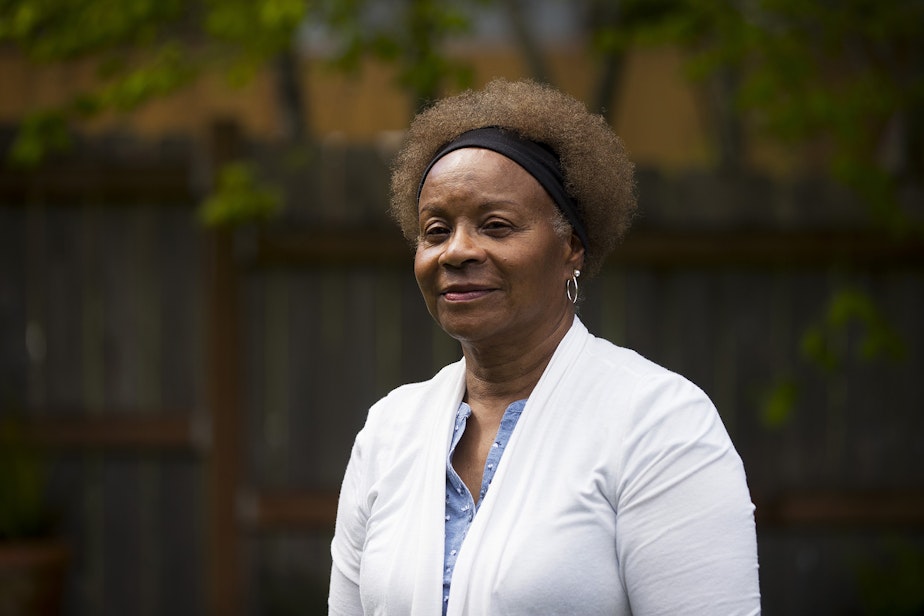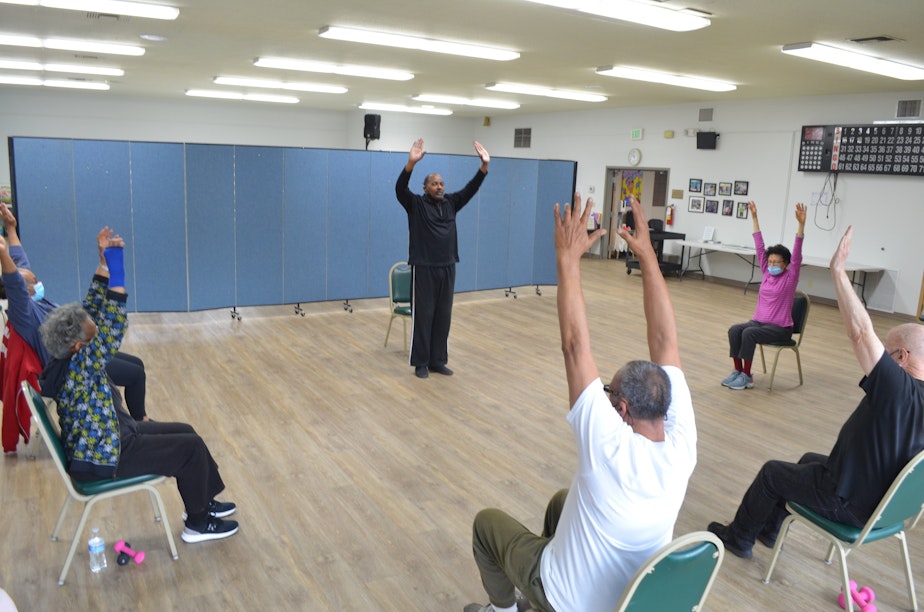The pandemic made these seniors rethink the 'years they have left'

Joyce Epps is 73 years old and lives in a house in Renton. In 2019, she had just retired from her job as an optician.
“My first year I was busy,” Epps said. “I had my calendar full. I wrote every day what I did. Covid — I didn't put anything on the calendar. What was I gonna put on there? I couldn't put yard work.”
Epps describes herself as a quiet person, but during the pandemic, her life was too quiet. She said she grew lonely, isolated and depressed.
“Going back and forth to the refrigerator, eating, watching TV, which I never did a whole lot of watching TV, but what else do you do?” she said.
A national survey found that one in four seniors reported experiencing depression in August 2020. That’s twice as many people as before the pandemic.
Lynda Greene, director of the Southeast Seattle Senior Center, said what many seniors experienced during the pandemic was unbearable isolation.
“They’re not seeing their friends. They’re isolated at home alone,” she said. “Their children or grandchildren may not even live in the area. The depression really, really comes into play by simply being alone.”
Sponsored
Loneliness doesn’t just increase depression; it can increase the risk of hypertension, strokes, and dementia, and it can make it harder for older adults to recover from falls and broken bones.
Epps was at a Silver Sneakers class at the Southeast Seattle Senior Center recently. She said the friendliness of the class is exactly what she needs right now.
“I’m pretty quiet as a person,” Epps said. But at this class, “You can’t be quiet. And I laugh. I'm happy to get out. It's refreshing.”
Other people in the class echoed the sentiment that they had planned for their golden years to look one way — time with family, grandchildren, friends — and then the pandemic took that away.

Sponsored
For Minnie Collins, 82, it was missing her sisters and brothers, who all live in Virginia, where she grew up. She hasn’t seen them since before the pandemic.
“I feel a little bit like part of me is missing," Collins said. "It's like having a family reunion and you can't get there.”
At a retirement home in Burien, Sandra Graf, 69, a former human resources professional for Boeing, described herself as introverted.
“I thought, ‘Oh, this won't be hard,’” Graf said. “But I realized how much I really do need people. I had way too much alone time.”
Greene, the director of the Southeast Seattle Senior Center, said she’s reaching out to seniors who are still isolated.
Sponsored
“What can we do to help you feel more comfortable coming out?” she said she asks them. “We’ve had situations where the senior is absolutely ready to come back, but the adult child will not allow them because they don’t feel that it’s safe yet.”
Greene said, at this point in the pandemic, she thinks isolation is more dangerous to seniors than Covid.
That’s why she’s glad that a lot of members are starting to come back to classes and join in family visits. She sees the boost it gives them.
"Many of our seniors are saying, 'You know, this has given me a new vantage point of how I want to live out the rest of my days,'" Greene said. She said what the senior center's members are telling her is, "I don’t want to be alone, and I don’t want to be unhappy. I want to enjoy my life. I want to laugh. I want to dance. I want to have fun for the years that I have left."
That’s what Graf, at the retirement home in Burien, has decided. She said the pandemic made it clear to her how precious her time is.
Sponsored
“I don't know how many years I have left,” she said.
Now Graf prioritizes time with family and friends above all else.
Collins, whose family is in Virginia, said she’s coping in a different way. She’s thrown herself into her writing, no longer saying yes to everything that used to distract her.
“Now that I've had a moment to reevaluate it, it's like, ‘I don't need to do that anymore,’” she said.
As for Epps, she said she’s doing better. She takes care of her granddaughter on Mondays and Tuesdays, and on Wednesdays and Fridays, she comes to exercise class.
Sponsored
She said the other pages of her calendar are filling up again too, with lunch dates and dinner dates and everything else she used to do.




